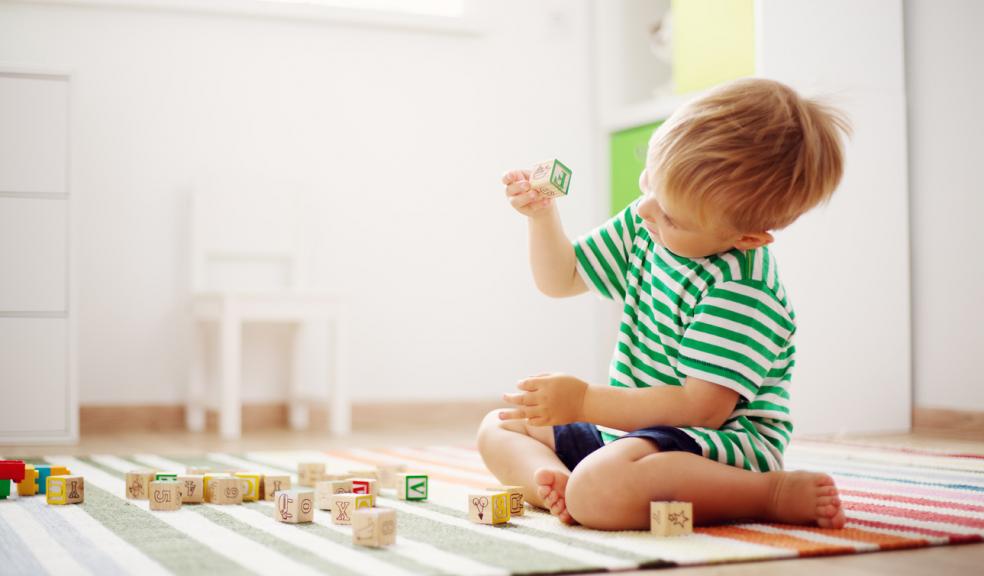
Why giving your children fewer toys could make your whole family happier
Modern family life can be complex, chaotic and stressful – but it doesn't have to be this way.
According to child development expert Denaye Barahona, if parents try to live according to the basic 'roadmap' of buy less, fear less, referee less, hurry less and entertain less, life will be a whole lot simpler, and thus less stressful.
And the simpler life extends to the kids too, who will benefit from having fewer toys in a clutter-free space.
Mother-of-two Barahona, who's just written Simple Happy Parenting (White Lion, £14.99, available now), explains: "I spent the early days of motherhood hurrying, hustling and stressing. Until I realised that living life like you are on fire will in fact leave you burned out."
She recommends parents start their 'journey to simple' by embracing a lighter way of life in the home, through measures like having a smaller, carefully selected wardrobe, creating a simple play space for the children with fewer toys, preparing structured, nourishing family meals, and having more unscheduled time on the family calendar.
"When we slow down and focus on the relationships we have with one another, we can appreciate an evening or weekend with nothing planned, " she says. "Nothing on the calendar means more time to intimately connect with each other, and in the busy, chaotic lives we lead today, connection is one of the things our children are craving the most."
Giving your children fewer toys in a simplified playroom may sound a challenging idea at first, but studies show children play more creatively with fewer toys, and focus better in clutter-free spaces.
To create a simpler children's playroom Barahona, who's behind the Simple Families blog and podcasts, suggests these 5 steps:
1. Take a week to observe
Spend at least a week watching your children play, and take notes. Pay attention to what they gravitate towards. Some children like to be cooking with us in the kitchen and others like to disappear into a world of pretend play. How do your children choose to spend their time?
2. Reflect and set goals
You should only have as many toys as you can fit comfortably in your space. There's no magic number, but when you strike the right balance you'll know because it'll be easy for your kids to clean up and it'll no longer feel cluttered to you.
Set a goal for reduction – you might need to get rid of more than half the toys to find the right number that fit into your space. You'll know you've found the right number when the space feels light and clutter-free.
3. Arrange with intention
When you use large bins and toy boxes, the items inside tend to disappear and fall towards the bottom. If the toys are unseen, they can't be used unless the child dumps the whole bin out. Instead, set the toys out on open shelves. If the toys are out and accessible, they'll be used more often and the children will know exactly where to put them back at clean-up time.
Why is clean up so important? Aside from our own mental health, when we give each toy a dedicated space we're showing our children how to take care of things they value.
4. Select the keepers
If your children are under four-years-old, you can usually follow your own instincts and observations about what toys to keep for them. If they are older, you can involve them in the process, but be sure you're steering the ship.
Choose a number of toys for them to keep so they have a goal to aim for. Be sure to offer support and assistance along the way. Remember, this is a positive change. This isn't a punishment. Your children aren't in trouble for failing to clean up. This is an exciting move towards a simple, happy family.
5. Detox
What if your children seem bored at first? Hold out before offering them extra screen time. When you scale back on the toys, there's often a short detox that takes place. Boredom inspires creativity. Once they work their way through the boredom, they will get back to the basics of play. You may want to put the toys into a back cupboard for a short time to observe how the play changes. You might find your children don't even notice the missing toys, or you may find you want to swap a few out before making a trip to the charity shop.
Remind yourself that this is a move in the right direction for your children. Although they may not completely understand the benefits right away, you'll see the positive changes in their play and behaviours. With fewer toys they'll begin to create and innovate more often. They'll have ample practice problem solving and sharing with their siblings and friends. Although it might unwrap itself slowly, simplifying your home is a gift for your entire family.













